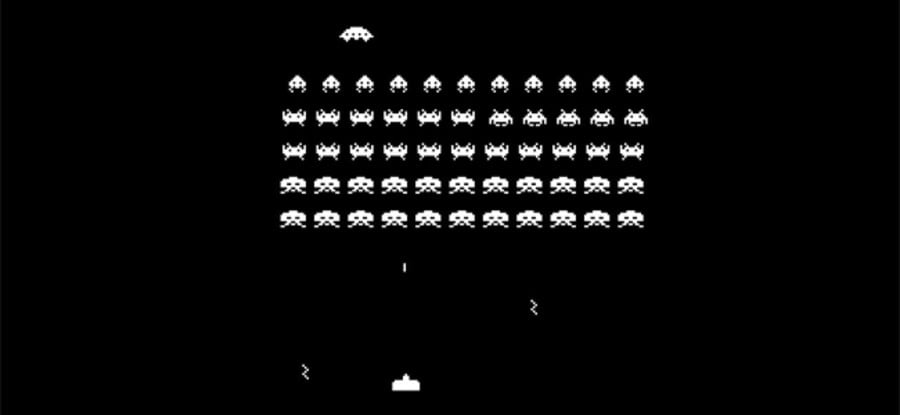
There was a time when video games were easy to define. You’d pop a quarter into a lively looking cabinet, shoot some aliens, and try to set a high score. The rules established by the early generation of arcade hits throughout the 1970s have long since dictated what we’ve come to expect from interactive entertainment, but as the industry matures – and the strides in computational power unlock new possibilities – the lines between cinema and gaming are beginning to blur. For many, this trend is a blight upon the hobby that they've grown up with – but are such opinions shortsighted?
Quantic Dream has long been an advocate of cinematic gameplay. While it struggled to make much of an impact back in 2005, the criminally overlooked Fahrenheit (or Indigo Prophecy as it was known in North America) attempted to replicate the format of a film on the PlayStation 2. The results were mixed, largely because the Parisian powerhouse was limited by the technological prowess of Sony’s then flagship format, but the release was successful enough to encourage director David Cage to try again with Heavy Rain. The latter made a much bigger splash when it deployed in 2010, exceeding €100 million in revenue – but it divided critics over whether it should be classified a game.

Fast-forward to the present day, and the French outfit is asking the same questions all over again. Beyond: Two Souls, the current generation swansong starring Ellen Page and Willem Dafoe, has managed to split the industry in two, raising quandaries regarding its place within the space. Reviews have been varied – much more so than its predecessor – with many journalists lamenting the lack of interactivity in the release, while others praise its astounding production values. The main criticism from detractors tends to stem from the game’s lack of traditional action – but what is it that actually constitutes a game?
According to company co-founder Cage, that’s not for anyone to decide. “Some people can be very conservative about this medium and that’s sometimes frustrating,” he told GameSpot earlier in the week. “Some people wish that games would always stay what they were in the past 30 years, just with more polygons. No one should be allowed to define what a video game is; no one has that power.” In the eyes of the controversial luminary, anything from Gran Turismo to Quake should be considered a game – but the outspoken executive is eager for the medium to expand beyond experiences where shooting and driving are the key interactions.

It’s a bold approach when you consider that the most commercially popular console brands all have an element of the aforementioned mechanics. Grand Theft Auto V managed to make over a $1 billion within three days of being on the market, and it’s a title that’s very much steeped in the staples that Quantic Dream is actively attempting to eschew. A glance at the most hotly anticipated holiday releases of 2013 reveals a similar story, with Call of Duty: Ghosts, Battlefield 4, and Watch Dogs all likely to register at the top of most players’ Christmas wishlists. But does a title need platforming, shooting, or high scores to be considered a game?
Merriam-Webster defines a video game as an “electronic [experience] in which players control images on a television or computer screen”. It’s a broad description, but it doesn’t appear to contrast Cage’s own outlook on the industry. Beyond: Two Souls may lack experience points, online multiplayer, and a linear learning curve, but you still very much manipulate moving characters using an input device – be it a DualShock 3 or a tablet or smartphone. In that sense, then, the PlayStation 3 exclusive can unquestionably be categorised as a video game. So why does the debate even exist in the first place?

Cage believes that there’s a certain type of player that refuses to appreciate games for anything other than action, killing, and competition – and it’s one of the key markets that it’s hoping to reach with its latest release. “We need to convince these people to give [the title] a try and say, 'OK, this is going to be different',” he continued. “Yeah, it's about a young woman. No she doesn't have a gun. And maybe you will enjoy the experience because it's different, because it's something maybe you haven't played before.” But in restricting its newest experience to a largely inconsequential string of button prompts, the developer appears to have ruffled feathers rather than appeal.
And yet the industry clearly demands a visionary to drag it out of its creative slump. Titles such as Tomb Raider, BioShock Infinite, and even The Last of Us promised emotionally absorbing experiences with relatable characters, but all devolved into dead end firepower fests in the end. This emphasis on gunplay and action is clearly hindering the industry’s expansion, with all of the abovementioned titles – no matter how enjoyable – failing to marry the thrust of their narratives with complementary gameplay mechanics. So how can the industry grow up, without outright ignoring the tropes that the past four decades have established?

Well, it’s arguably already happening in the indie space. Mojang’s sandbox smash Minecraft may lack pre-defined objectives, but it fuses many common gaming staples – crafting, survival, and exploration – into an experience that largely avoids the combat-heavy crux of most popular games. Meanwhile, Telltale’s award winning The Walking Dead offers an evolution of the point-and-click escapades of old, swapping the sawed-off shotgun antics of its Activision counterpart for an adventure that’s all about player agency and decision making. These are both tremendously unique releases – but crucially, they’re still games.
As a consequence, maybe the response to the titular query is that it just downright depends. Quantic Dream may not win everyone over with Beyond: Two Souls, but as gaming continues to snowball in popularity, perhaps it’s down to you to decide what you want to get out of the medium. With blockbusters selling more copies than ever before, there’s no need for traditionalists to feel threatened by more experimental releases like Journey and The Unfinished Swan. But with digital markets such as the PlayStation Store offering new avenues for developers to explore, there’s never been a better time for creative minds to push the boundaries of the industry either.
What do you think constitutes a video game? Are you open to more experimental experiences, or do you think that interactive entertainment should be defined by a specific set of rules? Share your thoughts in the comments section below.





Comments 22
I agree with Cage, everything does not need a pigeon hole, but at the end of the day it's personal choice. I loved journey and Rain, highly recommended it to my friends and they thought it was rubbish. Same goes with Heavy Rain some enjoyed it some didn't.
We beg for new I.P and new ideas then shun them when they come. I enjoy Cage's games got my Beyond two souls copy and will report back when I have had some time with it. Challenging what should be called a game is exactly the push the industry needs.
Just an opinion don't lynch me yet
I always tend to prefer gameplay over story for me it must be at least 60% of the time just gameplay, you can put on the rest all the cutscenes, QTE, and minigames you want if the gameplay its still solid.
Yeah, I also agree with Cage. Personally, I'm really quite tired of the traditional game loop in narrative driven titles. Don't get me wrong, Resogun is probably my most anticipated release on PS4, and that's a game that's about as close to the traditional "definition" of a video game that you'll ever find, but when it comes to titles like BioShock, Tomb Raider, and The Last of Us, I'm really bored of this idea that you watch a cutscene, then shoot a hundred people, then watch a cutscene. We need to find a way to offer different types of gameplay - especially if the story demands it. I'm not sure Quantic Dream's way is the right way, but at least it's trying to do something different.
I think it's ridiculous that games are defined by this idea of death and restarts, to be honest. The whole reason for the 'Game Over' screen — as I understand it — stems from the fact that developers back in the day needed to find a way to force you to insert some more coins. And yet, here we are, with consoles that don't accept quarters — and we're still hitting restart every time we lose a "life". It's ridiculous.
It all depends on context, of course. There are games — Resogun, for example — where a 'Game Over' screen makes sense. That's fine - I just don't think it needs to apply to every game. And on the subject at hand, I personally hate this idea that a game is not considered a game just because it doesn't do the thing that other, er, games have always done.
It's not just a case of experimental games, i for example love games like Journey, Tomas Was Alone, Walking Dead and Unfinished Swan, but absolutely hate Heavy Rain, the mechanic, characters are bad and the history is full of holes. Beyond i didn't play yet.
@ferrers405 That's totally valid, of course. If you don't like Heavy Rain for the reasons that you specified, it's totally fine. But you still would consider it a 'game', I assume?
@get2sammyb I am always on the hunt for something new. Don't get me wrong I love my action adventure titles, my FPS titles, my RPG title but how much of them can you really take? We are joining a new generation where about 75% of the launch titles are FPS! So something different now is suitable. In my opinion new is better but also a risk. The ones who will never play "different" games are those who only play games like CoD & Fifa. The players who will not go for something different but rather moan about how "it is not a game".
I think we are in an age where we are become less impressed with new features in game engines and more involved in how a story is told. Your example of Walking Dead is spot on. My partner watched me play that entire game & she loved ever moment of it. This is where games are going. Into a position where it is not just the player experiencing it anymore, but other around them.
I don't mind games incorporating guns as long as the game isn't dominated by them. The Last of Us was great because the scarcity of ammo prevented the game from devolving into your typical third person shooter.
I don't think a game should be denied the label of "video game" just because you aren't going around putting holes in anything that breathes. Hopefully David doesn't become discouraged and decides to pander to the naysayers by riddling his next title with guns.
This is a really interesting topic that'll no doubt have people debating for years and years to come.
I've been embroiled in this argument numerous times after declaring my adoration for Journey. People would say to me "but it's not really a game" and to this day there really isn't a perfect counterpoint against that. All I know is that it's a brilliant experience - an interactive experience that happens to be found on a gaming console.
At the end of the day, there's room for games like Beyond and more traditonal games like Resogun. I'm glad we've gotten to this point where diversity is so easy to come across.
@get2sammyb yes, a bad one, for me at least, but still a game, regardless of some say i think a different type of gaming is necessary and valid, all depends of the quality of the entertainment provided.
I am a big proponent of storytelling in games. I would be perfectly happy to play a visual novel game with absolutely no "gameplay" required. Throw in a little bit of decision making and exploring to get the conversations going and you've got yourself a game. Sometimes if the story is good enough I find myself wishing for less gameplay. Like 999 and Virtue's Last Reward. Just gotta finish this puzzle so I can get back to the good part.
It seems the older I get the more I care about story telling in games.
That is not to say I won't play or enjoy a game with out a story but I find myself seeking out games like Heavy Rain,Beyond and The Walking Dead more and more.
Now in-terms of mixing the two with story and gameplay Naughty Dog is king.
I like games where you don't need story to feel and understand what's going on, and have emotional connection with world and character. Like in Shadow of the Colossus or Jorney, for example. So little words and cutscenes, but so many emotions.
Games like Beyond and Heavy Rain, must have really good story and director, to be interesting. Games and Interactive experinces can give so much more than movies and even books. People just can't understand their power, yet. they still think about games like about interactive movies, meh....
@ShogunRok See, I think the counterpoint is that it is a game. You control characters. You press buttons. You solve puzzles. It's totally a game. In fact, in my opinion, it's more powerful because it is a game - I don't think it would have the same impact if you just sat and watched it like a film. The interactivity makes it more engrossing.
@Squiggle55 Yeah, another game that I think suffers from the 'game' parts is Catherine. I couldn't wait for the puzzles to end in that...
Feels like Ive had this conversation before, with Space Ace in the arcade and Myst on the PC. Those were of course very different experiences but I remember having the "but is it a game?" conversation.
I like story - Puppeteer is half cut scene - but it has to make sense. The original MGS did a lot of new and weird stuff on the PS, but 4 lost me. Asuras Wrath was good, but way too much reading in Castlevania LoS, even if it was Picard.
For me anything that requires interactive decision making is a game. From Killzone to an eductional platform at a museum. The real limitation on games and why they are not evolving is largely because of the hardware they are running on. Take the playstation for example, the core functions have barely changed over 4 generations - same control inputs driving a single screen. Of course developers can change there style of games (and we have seen this) but they have been locked into roughly the same parameters for 20 years. Im not by any means trying to say one console is better than another as they all have their merits but if you are looking for games that push conventions and provide completely new experiences while remaining being a GAME then look no further than Nintendo (wii, 3ds)
I don't remember the last time I saw a game over screen on nintendogs or Spin the bottle: Bumpies party and neither of these games could have been made on "traditional" hardware
@get2sammyb Again you raise some interesting points and I for my part love the mix of action and cinematics in the games you mentioned, BUT yes we are overdue for a change but I doubt that it means we have to invent the "wheel of gaming" new, the industry just needs to focus on different genres as a whole. Can you remember the boom of eco-sims, railroad sims, theme-everything back in the day? There is no violence, game over screens or what not. By today's standard I imagine you could even make an eco sim that has mass-appeal AND learns people the ins and outs of trading on the stock market or what not. Of course, Im just metaphorizing, dreaming and generally letting my mind fly.
Asking for a change is a good thing, expecting everything to be new and uncharted terrain in every game is not realistic. look at the indies. I love the indie scene and enjoy one of those games here and there, but it also has its "tropes". Pixelart? Done to death, tower defense games, age of eon clones, done to death, ...
I truly agree that new things should be tried but my opinion stands that "less interaction" and "less consequence" is NOT the way to change things up. Because for me its either: im interactively enjoying a game seeing how my actions affect the game world (like you said unfortunately more often than not that only interaction is blowing someones face off) OR I am passively, relaxed watching a movie.
@get2sammyb - The main reason I haven't played Catherine is my hatred of puzzles.
I must confess that I haven't had a chance to play this yet, but am very eager to do so. It is possible that I will be disappointed but I really don't think so. I loved Heavy Rain, despite is narrative holes. I am confident I will love Beyond.
I fully expected that this game would polarise people and that there would be mixed reviews. However, what has frustrated me about so many of the negative reviewd is that they have criticised it for even trying to be exactly what it has set out to be. As if no-one has a right to create a game like that. It shouldn't even be classed as a game etc.
I find that type of thinking infuriating. So backwards looking and closed minded. Just accept the game for what it is and review it for how well it achieves what it sets out to achieve. Not slam it because it doesn't fit a some preconceived stereotype of what a game should be.
There are days where the gaming community disappoints me, and this has been one.
The way I see it as long as its mentally, if not physically engaging, its a game. Wether your in it for the gameplay or the story is another matter entirely. Some people only care about gameplay while others only want the story, and everything in-between. Theres no right or wrong reason to play.
The problem comes when companies are too afraid to make something new or different because "it doesn't sell". There are simply too many factors as to why that is, everything from price to the lack of a middle ground.
@get2sammyb
Yep, the classic coin-op. I think the reason that has carried on so long is because nobody has figured out a better way to handle penalties and failure in games. A lot of the time that penalty is death, so you'd have to restart in most cases.
I think it needs to be longer then Jurassic Park for the Sega Genesis. (For those of you who don't know, the game can be beat in less then 4 minutes.)
@Ginkgo I had the same reaction to all this myself. I author on a Niche blog so I dont tend to visit the mainstream press much but with me looking forward to Beyond I checked out a few reviews and I can honestly say that mainstream gaming these days is horrific with how games that dont fit the norm are treated.
@Ginkgo "There are days where the gaming community disappoints me, and this has been one."

Tap here to load 22 comments
Leave A Comment
Hold on there, you need to login to post a comment...